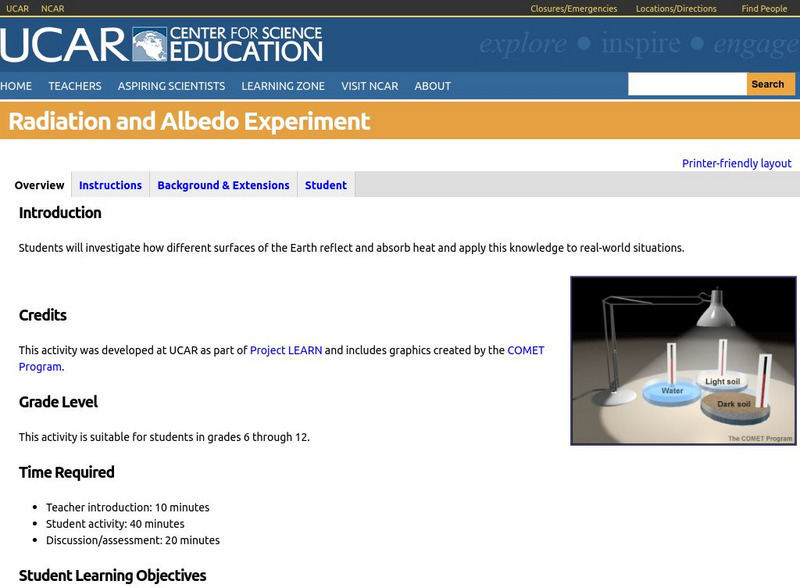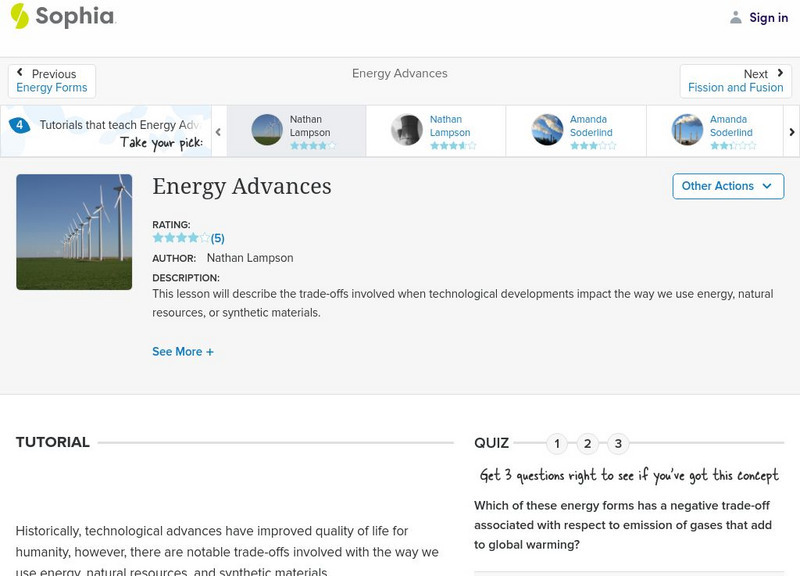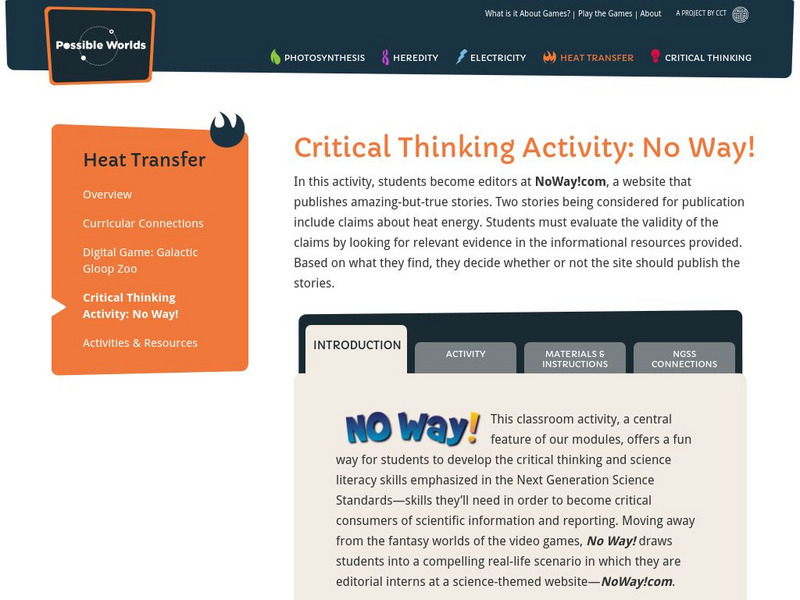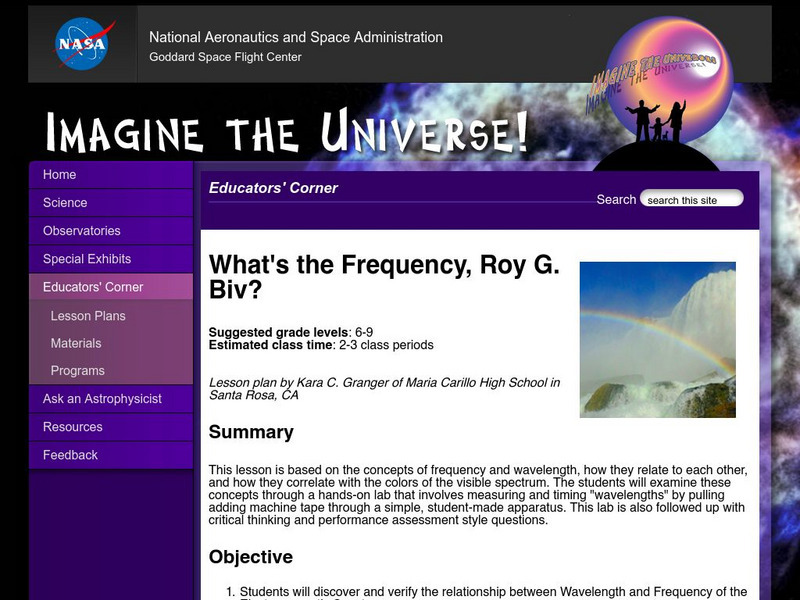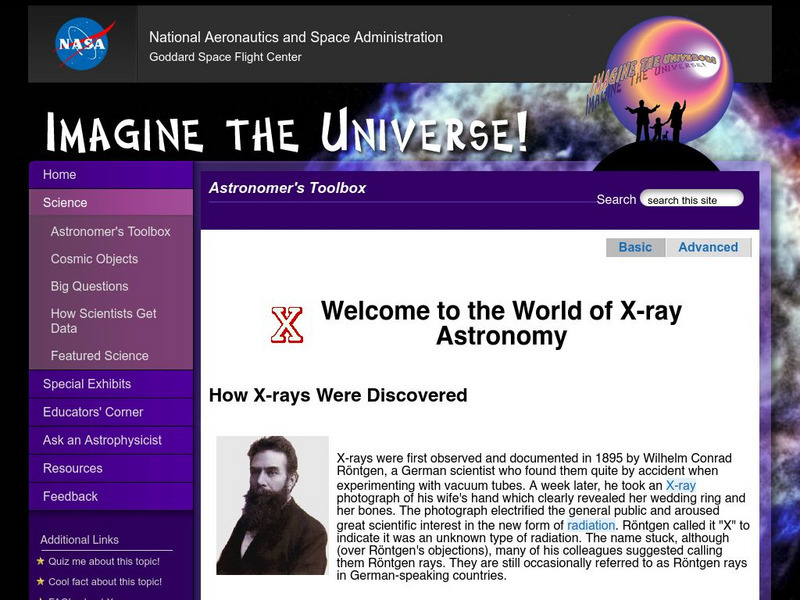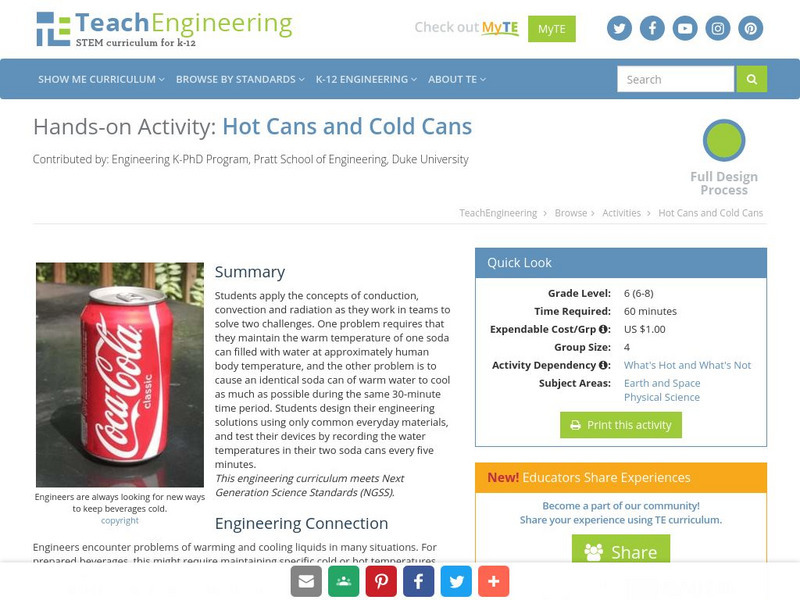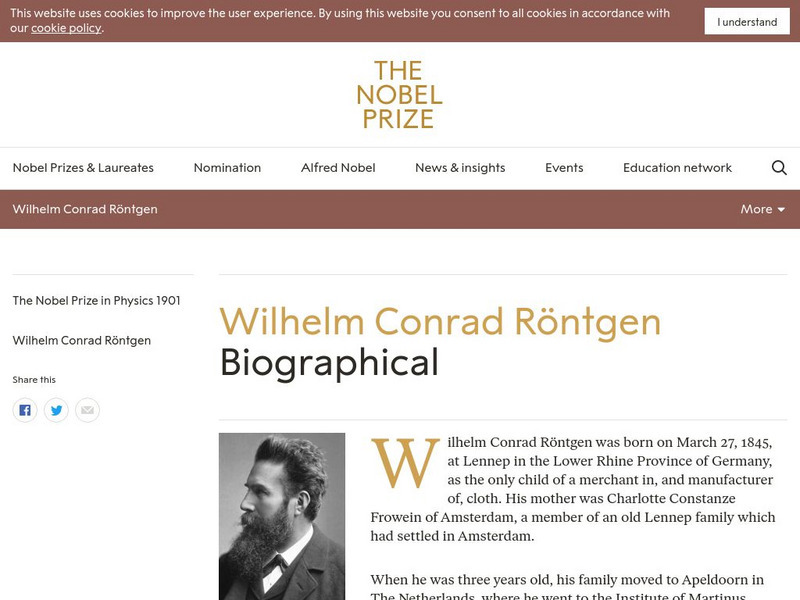National Health Museum
Radioactivity: Historical Figures
A summary of the contributions of Wilhelm Roentgen, Antione Henri Becquerel, Marie Curie, and Ernest Rutherford on radioactivity.
University Corporation for Atmospheric Research
Ucar: Introduction to the Atmosphere
A detailed overview of the Earth's atmosphere, with explanations about atmospheric properties, the structure of the atmosphere, its four layers, atmospheric processes, energy heat transfer, conduction and convection, and radiation. All...
University Corporation for Atmospheric Research
Ucar: Atmospheric Processes Radiation
This site provides background information, images, and an activity to help students understand the concept of radiation. Includes both the student pages and a teachers guide with lesson plan.
Sophia Learning
Sophia: Energy Advances: Lesson 2
This lesson will describe the trade-offs involved when technological developments impact the way we use energy, natural resources, or synthetic materials. It is 2 of 4 in the series titled "Energy Advances."
CK-12 Foundation
Ck 12: Dangers and Uses of Radiation
[Free Registration/Login may be required to access all resource tools.] Students learn about sources of radiation in the environment, its dangers, and its uses.
NPR: National Public Radio
Npr: Looking Back on Three Mile Island
NPR provides us with a slide show of information on the Three Mile Island crisis, the site of the worst nuclear plant emergency in American history.
Education Development Center
Center for Children and Technology: No Way: Heat Transfer
For this heat transfer activity, young scholars become editors for a website that publishes amazing-but-true stories. Two stories being considered for publication include claims about heat energy. Students must evaluate the validity of...
CK-12 Foundation
Ck 12: Earth Science: Outer Layers of the Sun
Identify the outer layers of the sun. [Free Registration/Login may be required to access all resource tools.]
NASA
Nasa: Imagine the Universe: What's the Frequency, Roy G. Biv
In this very detailed lesson plan from NASA, students investigate wavelength and frequency within the electromagnetic spectrum.
NASA
Nasa: Imagine the Universe: Welcome to the World of X Ray Astronomy
Site recounts how X-rays were discovered as well as who discovered them. Offers graphics, links to facts on this topic, a quiz, and teacher resources.
Famous Scientists
Famous Scientists: Gustav Kirchoff
Find out about the life and work of Gustav Kirchoff, who made contributions to the fundamental understanding of black-body radiation emitted by heated objects, spectroscopy, and electrical circuits.
NASA
Nasa: Imagine the Universe: The Sun
Site discusses the regions of the Sun's atmosphere such as the Photosphere, Chromosphere, and Corona. Provides sources for educators as well as additional links for students.
Wisc-Online
Wisc Online: Conduction, Convection, and Radiation
Guess the letters with this thermal energy transfer spinner game.
Wisc-Online
Wisc Online: Heat and Heat Transfer Part 1
Review heat and heat transfer by solving these seven phrases! Then move on to "Heat and Heat Transfer Part 2"
TeachEngineering
Teach Engineering: Hot Cans and Cold Cans
Students apply the concepts of conduction, convection, and radiation as they work in teams to solve two problems. One problem requires that they maintain the warm temperature of one soda can filled with water at approximately body...
TeachEngineering
Teach Engineering: How Hot Is It?
Students learn about the nature of thermal energy, temperature and how materials store thermal energy. They discuss the difference between conduction, convection and radiation of thermal energy, and complete activities in which they...
TeachEngineering
Teach Engineering: Visible Light and the Electromagnetic Spectrum
In this lesson, the electromagnetic spectrum is explained and students learn that visible light makes up only a portion of this wide spectrum. Students also learn that engineers use electromagnetic waves for many different applications.
Curated OER
Kids Health: Hodgkin Lymphoma
Hodgkin's disease is a type of lymphoma, and a common type of cancer in kids, but still rare. In this article just for kids find out the causes, the symptoms, the treatment, and how to live with it.
Curated OER
Kids Health: Some Kinds of Cancer Kids Get
Use this site to learn about several types of cancer that are common among kids, including leukemia, brain cancer, and lymphoma.
CK-12 Foundation
Ck 12: Earth Science: Interior of the Sun
Identify the layers of the Sun's interior. [Free Registration/Login may be required to access all resource tools.]
NASA
Nasa: Space Place: What Is Infrared?
See images and read about examples of infrared rays, and learn how they behave in different conditions.
Nobel Media AB
The Nobel Prize: Wilhelm Conrad Rontgen Biographical
This biographical note on Wilhelm Conrad Rontgen describes his boyhood, upbringing, education, scientific work and accomplishments. Focuses on his studies of Xrays.
Other
Air and Waste Management Association
Information and links to environmental issues. Specifically, air and waste management issues.
Geography 4 kids
Geography4 Kids: Earth Energy
Kids' site explores the energy around us as well as why radiation isn't always dangerous and where we find energy.



